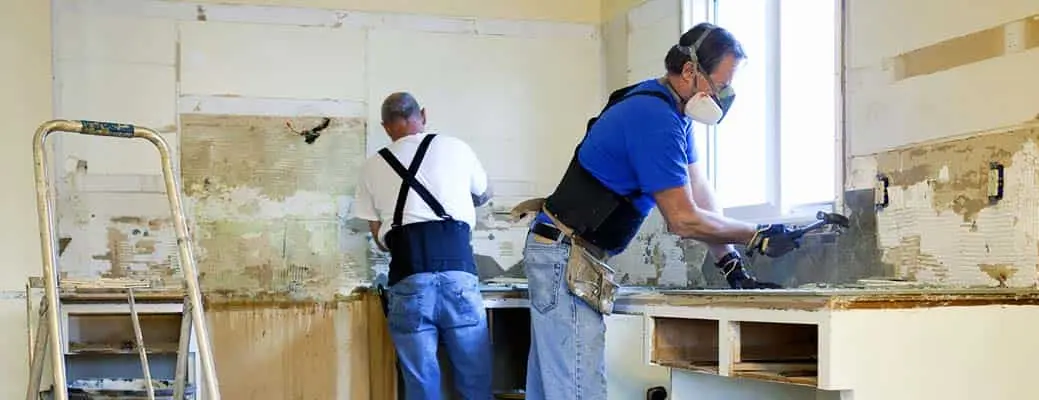10 Questions to Ask a Contractor


No matter the size or scale of your project, renovating a home is a massive undertaking. When choosing a contractor, it’s vital to do a little vetting. These 10 questions for contractors will help ensure you find a good fit.
Before you waste any time on an unqualified candidate, confirm your contractor is licensed and insured. Ask to see the license and proof of insurance, and make sure both are up to date. A business license isn’t enough — cities, states and counties have different requirements for what licenses and credentials contractors need to do business. Find out what your state requires and get info on how to verify your contractor is licensed.
General liability insurance protects your home and property if something goes wrong. Your contractor should also have workers compensation insurance, which protects you if one of the workers get injured on the job. Sub-contractors working under the contractor also need general liability and workers comp insurance.
An established company that’s been in business for years likely has the systems in place to get your project done correctly, on time and within budget. A new business isn’t necessarily a bad thing, though. A seasoned tradesman who has moved to a general contractor role may fit the bill for your project.
You should, however, avoid contractors who work primarily in another field and have no professional background in the field. If you’re doing a kitchen renovation, for example, ask to see examples of previous kitchen projects they’ve done.
Ask if your contractor is a member of a professional association (a good sign), has been sued (a bad sign) or has declared bankruptcy (another red flag). Search for the contractor’s name and business online to see if anything suspicious pops up.
Past clients can offer insight into the contractor’s level of work, adherence to budget and timeline, cleanliness and professionalism. If your contractor is unwilling to provide references or you get a less-than stellar review, keep searching.
This is one of the most important questions to ask a remodeling contractor. Most projects that change the structure of your home will require a permit and inspection. Find a contractor who knows what permits you need and how to pull them — and is willing to do it on your behalf.
Before jumping in, ask for an itemized estimate. (If you can compare multiple estimates from different contractors, all the better.) A price markedly lower or higher than the others is a sign to take a closer look. A cheap price tag could mean shoddy work done quickly, but you also don’t want to overpay. If you plan to sell your home eventually, find out whether the work will add value in the long run, or if you may be spending more than you’ll be able to recoup. If you prefer one contractor over another but his price is much higher, talk to him. Let him know you’d prefer to work with him if he can meet you in the middle.
Next, work out a payment schedule. A trustworthy contractor will never ask you for the entire amount up front. Instead, you’ll pay out in installments tied to benchmarks in the project or once the work is completed. (Don’t pay out the final amount until you’re satisfied with the work.)
Prices can shift once the team begins work. Be sure your contract specifies no spending over your additional budget without your approval.
Check that you’re paying out to the company performing the work. If you’re asked to write a check to an individual or to another business, ask about it. This could mean your contractor isn’t reporting the income.
Find out how long your contractor is planning for the job, including when the team can start. Inquire about other projects they’re working on and any current bids, both of which could delay your project. Any dates you discuss, including the timeline and estimated completion date, should be included in your written contract.
You’ll need to plan around construction start and end times, whether you’ll be home during the work. Check whether you need to be home, what the noise will be like and if you should clear out certain areas during construction. At the end of the day, the team should clear out trash and debris, cover or clean up dust and pick up nails, screws or anything else you may step on.
Find out if your general contractor has a work crew or is bringing in subcontractors. Will he or she be supervising the project personally? If the contractor or a full-time employee won’t be on-site for most of the project, bow out.
The contractor should provide you with a written warranty. (Verbal won’t cut it.) Check how often, and when, they will return to check on the work and ensure everything is in working order.
Hiring a contractor can be daunting if you don’t know what to look for. Protect yourself (and your home) during the renovation with umbrella insurance — talk to your Farm Bureau agent to learn more about this affordable coverage, and protect your investment, and everything under your roof.